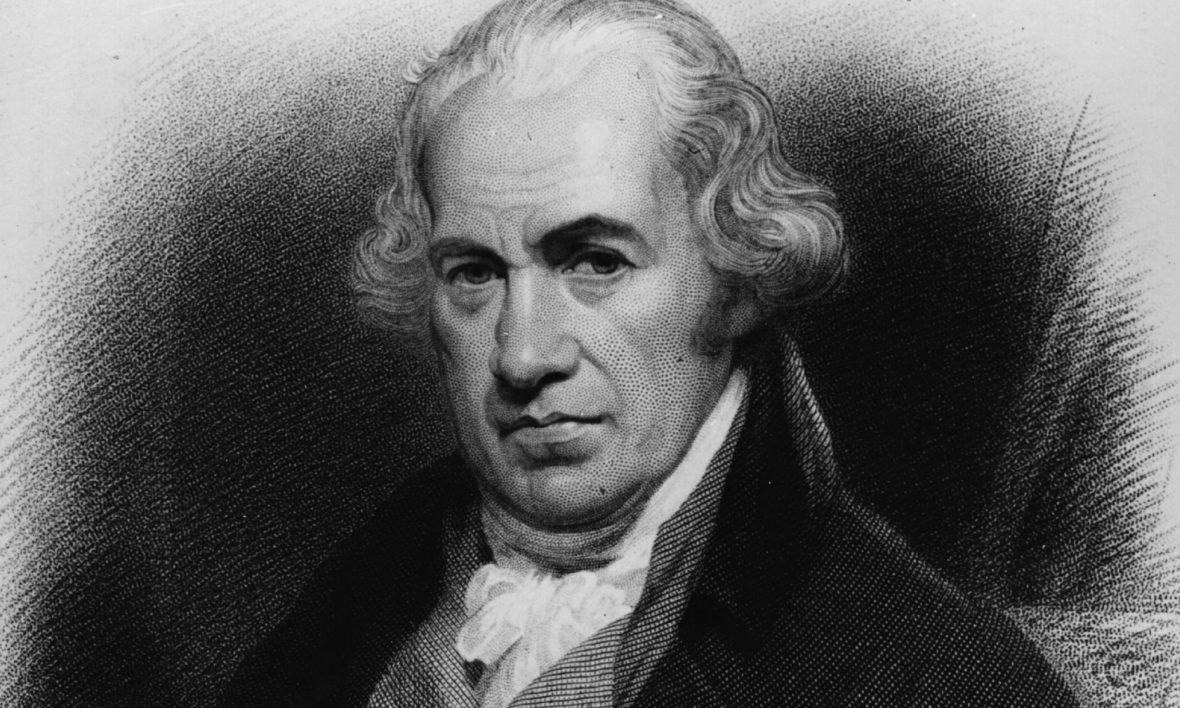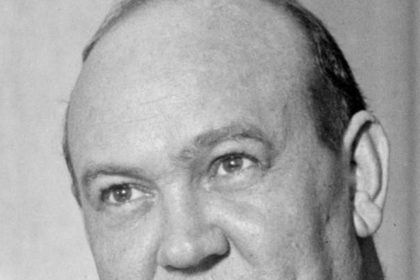James Watt was a Scottish inventor, mechanical engineer and chemist who improved on Thomas Newcomen’s 1712 Newcomen steam engine with his Watt steam engine in 1781, which was fundamental to changes brought by the Industrial Revolution in both his native Great Britain and the rest of the world. Take a look below for 30 more interesting and fascinating facts about James Watt.
1. While working as an instrument maker at the University of Glasgow, Watt became interested in the technology of steam engines.
2. He realized that contemporary engine designs wasted a great deal of energy by repeatedly cooling and reheating the cylinder.
3. Watt introduced a design enhancement, the separate condenser, which avoided this waste of energy and radically improved the power, efficiency, and cost-effectiveness of steam engines.
4. Eventually, he adapted his engine to produce rotary motion, greatly broadening its use beyond pumping water.
5. Watt attempted to commercialize his invention, but experienced great financial difficulties until he entered a partnership with Matthew Boulton in 1775.
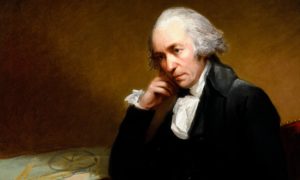
6. The new company of Boulton and Watt was eventually highly successful and Watt became a wealthy man.
7. In his retirement, Watt continued to develop new inventions though none was as significant as his steam engine.
8. He developed the concept of horsepower, and the SI unit of power, the watt, was named after him.
9. Watt was born on January 19, 1736, in Greenock, Scotland.
10. His father was a carpenter. During Watt’s childhood, his father spent much of his time building ships and Watt would spend his time helping his father.
11. As a boy, Watt was in poor health so his parents chose to home school him.
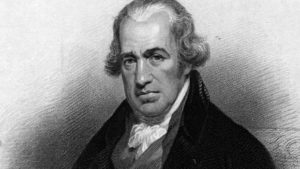
12. Watt remembered experimenting with his mother’s steam pots as a child.
13. When Watt was 19 years old, his mother died. At the age of 19, Watt left home to go to London to learn how to build instruments such as surveying instruments and ship navigation instruments.
14. In 1764, Watt was working at the Glasgow University in Scotland. During this time, the university obtained a Newcomen engine. A Newcomen engine was the first machine to use steam to result in mechanical work. The university asked James to repair the Newcomen engine, however, Watt found ways to improve it.
15. By 1781, Watt was able to make his steam engine a rotary engine, which had even greater efficiency and power than a Newcomen engine.
16. The rotary movement provided a much more powerful and efficient steam engine. Watt’s steam engine ended up using about half the fuel of a Newcomen engine.
17. Watt patented his improved steam engine invention. However, instead of paying Watt royalties, many business owners used less efficient older engines until Watt’s patent expired.
18. In 1784, he was invited to join the Royal Society of Edinburgh and in 2011, was inducted to the Scottish Engineering Hall of Fame.
19. Watt appeared on a 50 pound sterling note in 2011. He is only one of two Scots to do so.
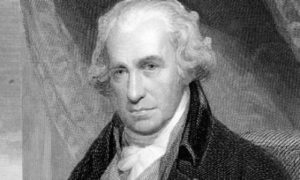
20. Watt also worked as a civil engineer and is considered to be one of the earliest entrepreneurs.
21. He made several important surveys of Britain’s canal network.
22. There are statues of James Watt in Manchester, Leeds, Birmingham and Glasgow, and several streets are named after him in Greenock.
23. His workshop and its contents can be seen in the Science Museum in London.
24. In 1764, Watt married his cousin Margaret Miller, with whom he had five children, two of whom lived to adulthood: James Jr. and Margaret.
25. His wife died in childbirth in 1772.
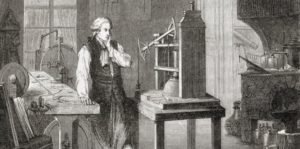
26. In 1777, Watt married again, to Ann MacGregor, daughter of a Glasgow dye-maker, with whom he had two children: Gregory, who became a geologist and mineralogist, and Janet.
27. Watt was an important member of the Lunar Society, and was a much sought-after conversationalist and companion, always interested in expanding his horizons.
28. His personal relationships with his friends and partners were always congenial and long-lasting.
29. Watt was a prolific correspondent. During his years in Cornwall, he wrote long letters to Boulton several times per week.
30. Watt was a rather poor businessman, and especially hated bargaining and negotiating terms with those who sought to use his steam engine. In a letter to William Small in 1772, Watt confessed that, “he would rather face a loaded cannon than settle an account or make a bargain.”

